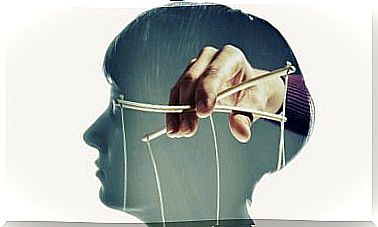Crises In Stable Relationships – Four Types

The couple is a reality that is constantly being built and renewed (evolution). Just because two people are in love with each other doesn’t mean they don’t have relationship crises or other difficulties and conflicts. In the same way, there are some common moments of crisis in long-term relationships.
Every relationship has its own world. They have their own strengths and weaknesses, as well as their own inherent conflicts. However, in a long-term relationship, there may be relationship crises , one or more. Some of them are very common. Those are the moments when certain factors emerge that weaken the relationship.
There are essentially four moments of crisis in a long-term relationship: when love ends, when one of them decides to formalize the relationship, when the children are born, and finally when the children leave home. Let us now examine all of these in a little more detail.
Relationship crises
1. The end or change of love
This is the first ordinary crisis in a long-term relationship. This usually happens a year after starting a relationship. Studies say that such love lasts an average of about three months. However, its effects last a little longer. It must not be forgotten that this is always case-by-case and is merely an assessment that speaks of averages, not individual cases.

The end of love means a break from the romantic ideal. In other words, we stop seeing our partner as a perfect or truly awesome person. At this point, all of our partner’s faults come to the fore. It means reshaping expectations and, at the same time, crises. Many couples who seemed perfect at first end up getting divorced within 1-1.5 years. That’s because the ideal becomes realism.
2. Formalizing the relationship
Normally, about three years after starting a relationship, another general crisis appears for long-term relationships. It’s the moment when the idea of “going to the next level” arises. Whether you decide to live together or not. This is again a reworking that will lead to the emergence of momentary instability.
At this point, a relationship can take many different paths. At best, both parties agree on whether to live together or not. In it, the other party is genuinely accepted and the relationship becomes more mature. However, some do not agree with the next step. Because of this, it is normal for this to lead to a break or for the couple to distance themselves, which can lead to divorce.
3. The birth of a child – a moment of crisis
The birth of a child is also one of the factors that forces you to rebuild a relationship. It’s one of those moments when some of the cracks in a relationship can become visible. Unresolved conflicts also tend to re-emerge, even those from childhood. What seemed stable may now begin to falter.

At this point, the relationship drops to second place as parenting becomes a priority. The child is prioritized. Sometimes there are disagreements about how best to raise a child. Sometimes, on the other hand, one of the parents thinks the responsibility is so great that it is overwhelming. The difficulty of dealing with these conflicts can lead to resignation. If a relationship manages to deal with difficulties, the family becomes stronger.
4. An empty nest and new challenges
Although the couple may have survived all the previous stages, it still has to face the moment when the children grow up and move away from home. The couple is once again two after many years. Both parties have changed significantly over time and the couple must practically get to know and recognize each other again.
In the old days, couples got married and had children at a younger age, and as a result, the crisis of the empty nest took place before the age of 50. In such cases, many couples still felt young enough to start over. Today, this reunion happens later. Because of this, differences are not very common at this stage, but awkward conflicts can occur from time to time. Exceeding them can lead to the awakening of the sleeping sides of the relationship.
Even if both parties to a couple may love each other deeply, that doesn’t stop the difficult moments of the relationship from being born. Crises in stable relationships are great opportunities to strengthen the bonds between a couple and give the relationship more depth and content.









